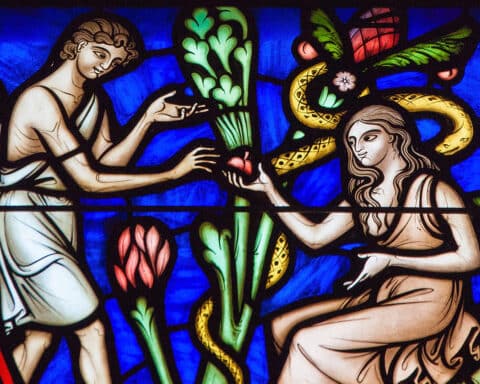
— John Parsons, Boston, Massachusetts
Answer: You are, of course, correct. The Scriptures do not directly address nor condemn drinking, smoking or gambling. Certainly drunkenness is condemned in numerous passages and ways, especially in Proverbs. Smoking doesn’t seem to have been widely practiced in biblical times; and gambling, while not unremarked, does not seem to be a preoccupation of biblical texts.
My guess as to why certain Protestant denominations highlighted these sins is that these matters loomed large in the American settlements when those denominations flourished. The American experience with alcohol is a rather tortured one. Heavy drinking and addiction to opiates was a huge problem in America from the 1880s to the mid 20th century. People, especially immigrants, often had difficult lives. Working conditions were terrible, hours were long and pay was poor. Many men of that period escaped into drinking. When payday came, too many men went to the bars and drank and gambled a lot of that money away.
The temperance movement of the time was largely led by women who were weary of the effect of drinking on the men in their lives and the effect that this had on families. Smoking and gambling were linked to drinking and thus came under fire as well. These factors led to a highlighting of these sins.
Often in such situations, religious people look for Scriptures to bolster their arguments. However, as already noted, using Scripture to prove that alcoholic drinks are intrinsically evil is a difficult task that results in contrived solutions. For example, some have argued that Jesus did not make wine at the wedding feast of Cana, and he did not use wine at the Last Supper. Rather he made and used grape juice. But this is simply not supportable. The Greek text is clear that Jesus made wine in abundance for the wedding feast and surely used wine for the Last Supper since wine was required for Passover meals.
The fact is, people drank a significant amount of wine in Jesus’ time. We ought to recall that water wasn’t pure then like it can be now. Wine helped settle the stomach and killed off some of the harmful bacteria in water and food. Hence St. Paul advises Timothy, “Stop drinking only water, but have a little wine for the sake of your stomach and your frequent illnesses” (1 Tim 5:23).
So alcohol is a lawful pleasure. But like all lawful pleasures, moderation is still necessary. Scripture says that the Lord makes “wine to gladden their hearts” (Ps 104:15). Now, to be gladdened is one thing, but to become sluggish and have our mind clouded such that we play the fool is another thing. Wine is a gift, but only in moderation.
Private priestly prayers at Mass
Question: I notice, especially at daily Mass, that the priest mumbles a lot of prayers to himself. What is this, and why doesn’t he say them aloud so we can all hear them?
— Name withheld
Answer: There are a number of secret or private prayers a priest is directed to say at Mass. There is one he says after the Gospel, some during the offertory and some before and after receiving Communion. The point of these prayers is for the priest to remain prayerfully devoted and attentive to what he is doing.
As for people being able to hear them, that is not the purpose of these prayers. There are just some things in the liturgy that pertain to the priest alone, a man in need of prayer who is summoned to union with the Lord in the midst of his liturgical role. In one prayer the priest privately says, “Lord Jesus Christ, Son of the living God, who, by the will of the Father and the work of the Holy Spirit, through your Death gave life to the world, free me by this, your most holy Body and Blood, from all my sins and from every evil; keep me always faithful to your commandments, and never let me be parted from you.” Here is a prayer both beautiful and necessary for the priest to quietly and devotedly recite. This is for him, a priest, but also a man before God about to receive his Lord.
Msgr. Charles Pope is the pastor of Holy Comforter-St. Cyprian in Washington, D.C., and writes for the Archdiocese of Washington, D.C. at blog.adw.org. Send questions to msgrpope@osv.com.





